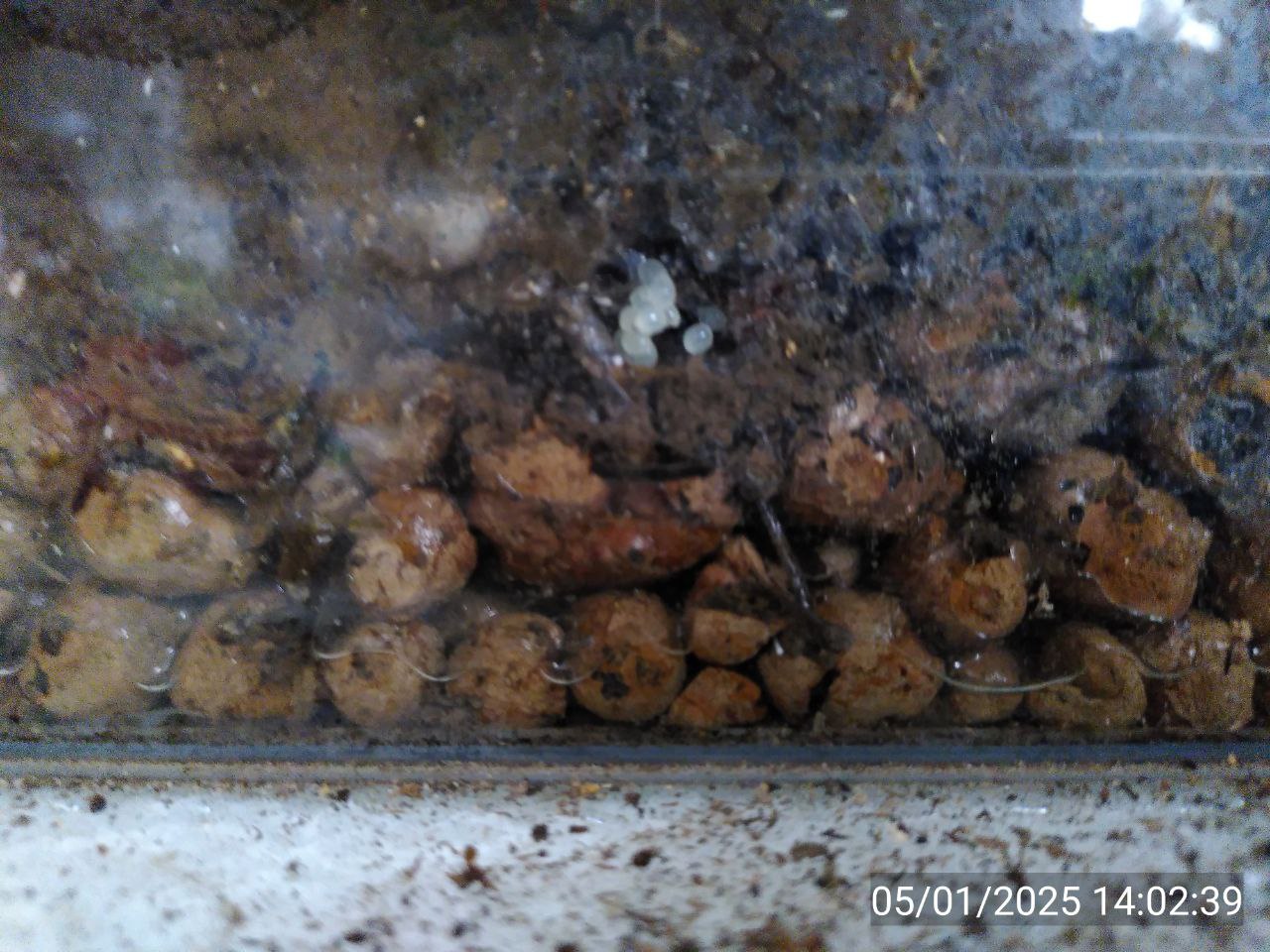Ask Biologists 🙋👨🔬 🧬
616 readers
2 users here now
Ask anything about all fields of biology. 🧪🧬🔬
We value quality over quantity.
Rules:
- Be kind, friendly and patient.
- No shitposting or other low-effort content.
- If possible, add sources.
- If possible, do some research and do not "just guess".
- No spam.
- No ads.
- No NSFW, gore, hate speech, violence, insults or trolling.
- No memes.
- Be as professional as you can, where appropriate.
You may also like:
founded 2 years ago
MODERATORS
1
2
4
5
6
7
8
9
10
11
12
13
14
15
16
17
18
19
4
If dominant genes override recessive genes, how do recessive genes still exist?
(self.askbiologists)
21
22
23
24
25
view more: next ›
 The eggs are a little over 1 mm in diameter. The terrarium is a wet forest biome with isopods, springtails, earthworms, julids, slugs and various assorted critters that hitched a ride when I collected Moss and earth in the forests here in middle Europe.
The eggs are a little over 1 mm in diameter. The terrarium is a wet forest biome with isopods, springtails, earthworms, julids, slugs and various assorted critters that hitched a ride when I collected Moss and earth in the forests here in middle Europe.